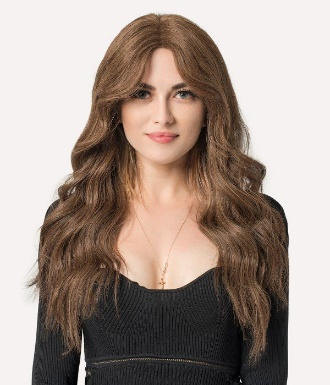In this article, we will try to answer why do Orthodox Jewish women wear wigs? Do you realize that wigs and hair toppers are an essential part of the Jewish woman’s daily existence? After marriage, Hasidic or Orthodox Jewish women cover their hair. Because of this, the use of wigs has become an integral aspect of popular culture. Jewish human hair wig manufacturer Sayar Wigs was the subject of an interview with Bracha Kanar for Jewish American Heritage Month.
Why do Orthodox Jewish women wear wigs?
In Judaism, modesty is a fundamental principle. Every aspect of a child’s Jewish upbringing emphasizes the refinement of Jewish behavior and the need to maintain a close relationship with G-d via modest attire and speech. Keeping one’s appearance modest and dignified allows one’s true personality to emerge.
Instead of focusing on one’s external appearance, Judaism focuses on one’s inner attributes. A buddy might be described as medium-height, blonde, and voluptuous if someone asked me to do so. Or should I use words like graciousness, wit, generosity, and welcoming home to characterize her?
It is easier to concentrate on our actual selves if we cover our bodies modestly. This is another Jewish value: the more sacred something is, the more meticulously it is wrapped and hidden. About its inherent sanctity, we handle the Torah scrolls, such as the Sefer Torah (Torah scroll), with the utmost respect and care.
There are rules of modesty that apply to both men and women, with the particular manifestations of modesty that reflect their distinct personalities; having married, a woman gain a new level of holiness since she has found her soulmate.

Before being married, may Jewish women wear wigs?
Before marriage, it’s uncommon for Jewish women to don wigs, although they can and do so when undergoing medical treatments that are causing them to lose their hair.
Is it necessary for a Jewish lady to wear a Kosher-certified wig?
Torah law states that a Jew is not allowed to gain from anything utilized in the service of idolatry. India was the source of a significant portion of the hair used in wigs for a long time. You discovered that some Indian women chopped their hair as part of an idolatrous ceremony and sold it to wig makers.
Why is it customary for Jewish women to wear wigs?
Women in Judaism are expected to have their hair covered at all times. Why do religiously observant Jewish women wear wigs? This is done out of a sense of humility. They cover their hair with hats, scarves, veils, or wigs.
When a lady marries, she must cover her hair in public. For the sake of privacy, her hair must be concealed. Some ladies go a step farther and wear their hair covered, including in their sleep, to maintain a more private lifestyle.
If a woman in Israel goes out without a scarf or if a guy curses a woman for exposing her hair, it is wrong. The strictness of the traditional Jewish view of women may be noticed.
The Effects of Wearing a Wig
The person wearing the hair-covering feels the effects immediately. It separates her from outsiders on an emotional and intellectual level. Despite her undeniable attractiveness, she is unable to attract anybody.
Other Orthodox rabbinic leaders have claimed that hair is no longer classified as sexy in our day and age since most women in society do not cover their hair while in public.
In the early 20th century, a few Orthodox rabbis endorsed women’s choices not to cover their hair at all, notably the Moroccan chief rabbi in the 1960s, HaRav Mashash, and the lesser-known American Modern Orthodox rabbi, Isaac Hurwitz – albeit they attracted criticism for this stance. According to their works, there is no legal necessity for women to wear modestly, which methodically analyzes the sources listed above.
Do Hasidic women cut their hair?
Hasidic women’s hair is either shaved or left long and unkempt. They’re doing this to hide that they don’t have any hair at all. Not every Orthodox Jewish woman does this. The majority of them don’t. It’s unnecessary for those who don’t shave to go to such lengths. They are content with only covering their heads. Even if they don’t go out in public, most women keep their hair covered at home and in the bedroom.
People from the Jewish faith adhere to strict clothing regulations. To reiterate, Jewish women’s modesty is highly revered. However, some Jewish women don’t stop at just covering their hair. Wearing wigs, they get their hair cut short.
Final Thought
Since women’s education has improved, an intriguing tendency has emerged among women who have studied the Jewish legal sources for themselves and have chosen to follow the more strict hair-covering standards of their community instead of their parents’. Hide and Seek, a 2005 book, explores the tales of these ladies.
Jewish women and their communities constantly refine and redefine modesty as a Jewish principle. Even if hair covering is no longer an indicator of modesty in certain groups, other women may opt to embrace it and continue a more traditional community practice. A person’s desire to be a part of a particular social group may significantly impact how modest they are. A person’s option to cover or not to cover their hair stands on a precipice where law and tradition, individual preference, and group identity meet.